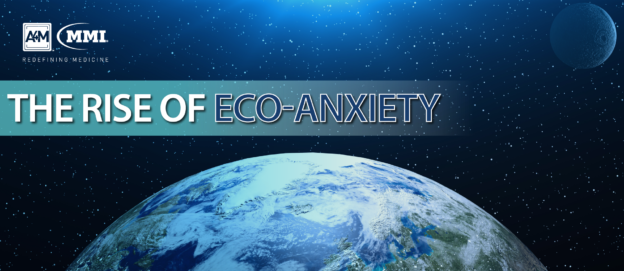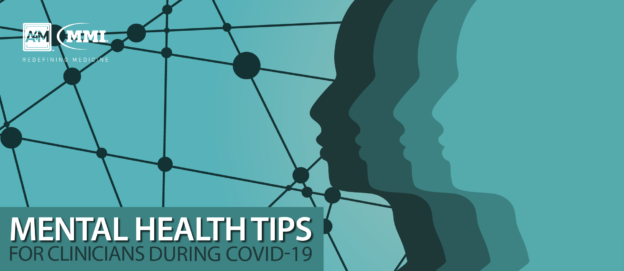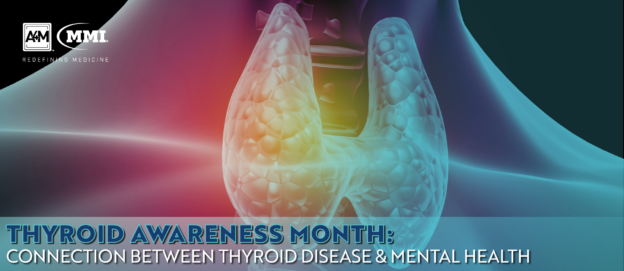Uncontrollable wildfires, heatwaves, rising ocean levels, and other climate change conditions are contributing to a surge in “eco-anxiety” – a new subset of mental illness that is characterized by an intense fear of environmental damage or demise. This sense of anxiety is largely based on the predicted future state of the environment as related to human-induced change. While not the same as clinical anxiety disorder, eco-anxiety can worsen or trigger preexisting mental health conditions.
Per recent data, about 70% of people in the United States are worried about climate change, while over half feel “helpless” about the situation. More evidence is emerging suggesting people are experiencing severe or chronic anxiety due to a feeling of lack of control; they are frustrated and afraid while also feeling guilty and anxious about their personal impact on the environment, causing the latest surge in eco-anxiety cases in the Western world.
What is Eco-Anxiety?
First defined in 2017 by the American Psychiatric Association as a “chronic fear of environmental doom”, the disorder remains under investigation. Although not currently listed in the Diagnostic and Statistical Manual of Mental Disorders, the condition is characterized by chronic or severe anxiety related to the current and future state of the environment.
The immediate effects of climate change – including damage to communities, food shortages, and reduced medical supplies – can not only harm physical wellbeing and displace populations, but can also prove to be a significant challenge on mental wellbeing. Gradual impacts of climate change, such as rising sea levels, warmer temperatures, and changes in seasonal patterns may lead to the development or worsening of chronic mental health symptoms. These can manifest as a mix of trauma and shock, post-traumatic stress disorder, anxiety, depression, substance abuse disorder, aggression, reduced feelings of autonomy, feelings of helplessness, and fatalism.
What Causes It?
For most individuals, eco-anxiety stems from experiencing or being at risk of experiencing climate-related consequences. The stress over losing housing or employment due to environmental changes can have a significant effect on an individual’s wellbeing, while chronic stress can raise the risk of several serious health conditions such as heart disease, hypertension, depression, and general anxiety disorder. This intensifying anxiety may also result from a growing awareness of the possibility of extreme weather events, the potential loss of livelihood or housing, fears for future generations, and increased feelings of helplessness.
Vulnerable Demographics
Some of the more vulnerable demographics for this condition include populations who reside in locations at risk for extreme weather – such as coastal towns and low-lying areas – and especially individuals who work in a field affected by environmental patterns such as fishing, tourism, and agriculture.
In addition, people who live in indigenous communities and rely on natural resources for their livelihood, tend to reside in more vulnerable geographic locations. They may face an increased fear of losing their housing, livelihood and cultural heritage which can be damaging to identity, belonging and a the greater sense of community.
First responders, emergency health care workers, and people who work in environmental jobs are more prone to developing eco-anxiety. Additionally, individuals with preexisting mental and physical conditions, children and young adults, people of lower socioeconomic status, and displaced or forced migrants may be more likely to experience the mental health condition.
As there is currently no clinical definition of eco-anxiety it may be difficult for health care practitioners to diagnose. However, if a patient is concerned about the environment to the point of interference with everyday activities or their ability to work or take care of themselves, they should be urged to speak to a mental health professional who may provide the necessary therapeutic support and be able to suggest effective coping mechanisms.
Experts in the field of eco-psychology, a branch of the medicine that evaluates psychological relationships with nature and their impact on identity, wellbeing and health, are working to better understand the newly-defined disorder and develop effective methods to alleviate its symptoms. A growing number of mental health practitioners are receiving training to help detect and manage fears related to eco-anxiety as its burden continues to increase. As part of this effort, the Climate Psychology Alliance is offering individual and group support for eco-anxiety sufferers as well as education for therapists, including free sessions over the phone or Skype.



